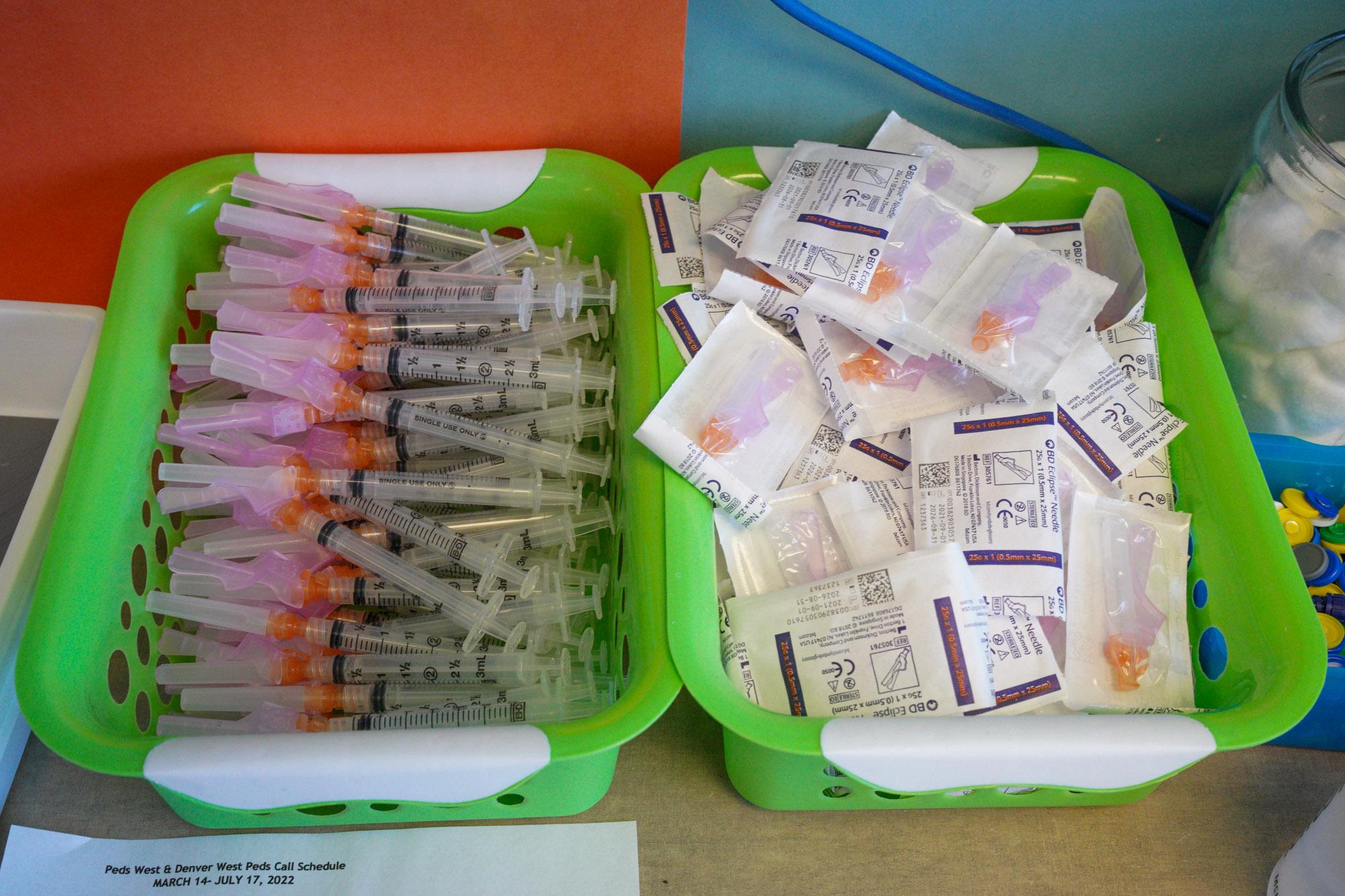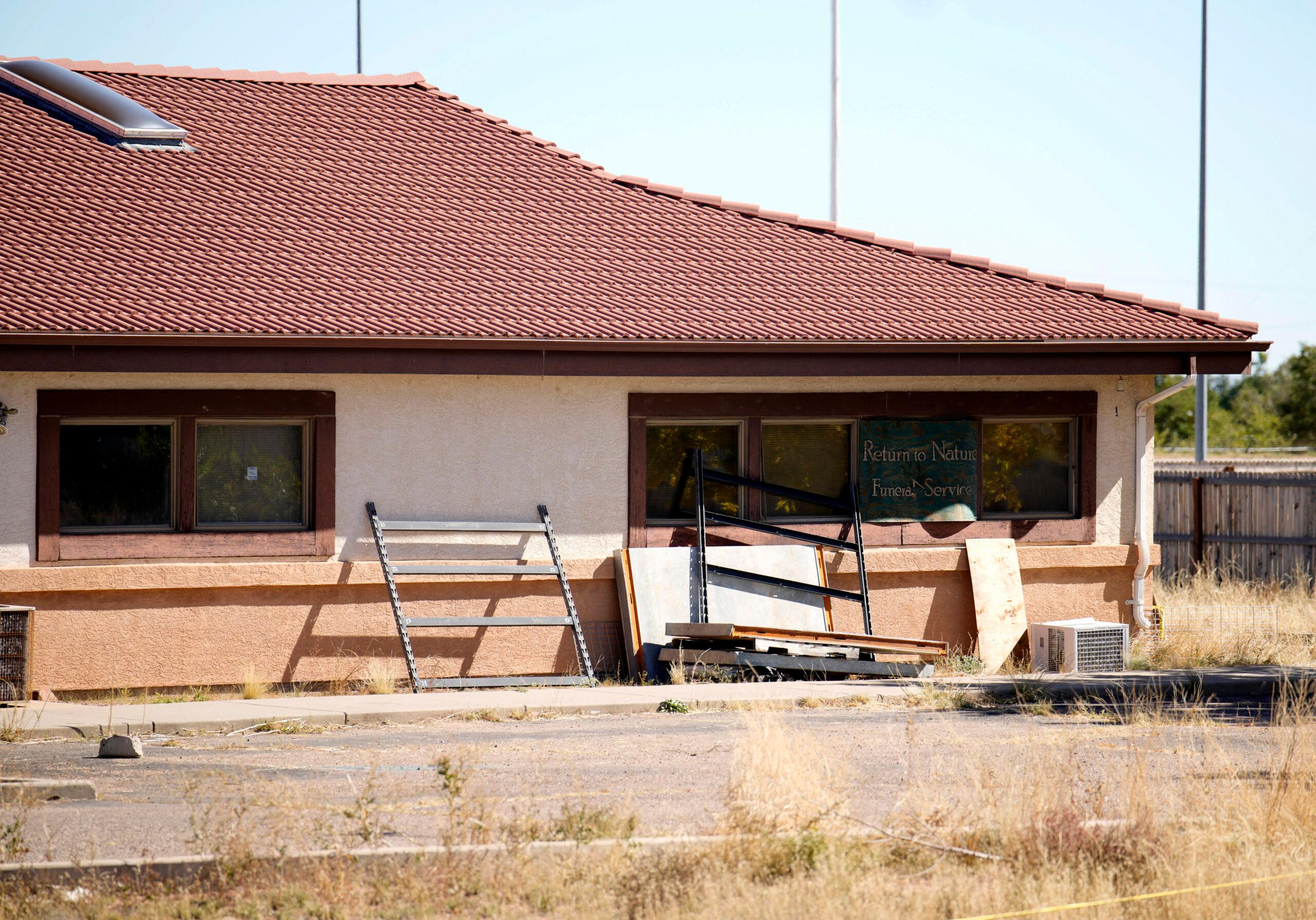
Updated at 11:47 a.m. on Monday, Sept. 25 2022
Update: Union leaders filed a 10-day notice of intent to strike with Kaiser on Friday, Sept. 22. Negotiations over a new contract continue. The filing, which is required by federal law, means Colorado workers could walk off the job on Oct. 4 if the two sides don’t reach an agreement on a new contract before then. The notice announced plans for a three day strike, providing an initial timeline for the walkout.
Original story below:
Kaiser Permanente and union representatives for more than 3,000 Colorado nurses, lab techs and call center staffers are scheduled to meet for another round of bargaining in California on Thursday.
Talks so far have been slow-moving, according to representatives from both sides. To put pressure on the nonprofit provider, workers in Colorado and union chapters across the country voted earlier this month to preemptively authorize a strike.
The move doesn’t mean a walkout is imminent. But it opens the doors for a strike if Kaiser and the union don’t reach an agreement before the current contract expires on Sept. 30.
“There's lots of anxiety about expiration,” said Stephanie Felix-Sowy, president of Service Employees International Union Local 105. “Folks don't want to strike, but they at this point have been pushed to the brink, like a lot of workers in this country.”
The main sticking points in bargaining include wage raises, hiring practices and changes to bonus policies.
The union says staffing shortages have reached crisis levels in many departments, and it has also accused Kaiser of unfair labor practices, such as failing to show up for meetings and withholding financial information throughout talks. Kaiser denies it has broken any laws.
An impasse could result in the largest healthcare worker strike the country has ever seen, according to SEIU. Contracts for more than 80,000 Kaiser workers across the country are a part of the negotiations.
The potential strike would last three days
Without a new contract, Colorado workers will walk off the job Oct. 4, which is four days after the current contract for SEIU Local 105 expires.
The union was required to give a 10-day notice to federal regulators before a strike can begin due to laws around healthcare labor actions. It filed that notice Friday, Sept. 25, and reps for Kaiser say it’s determined to reach an agreement before the end of the month.
“A strike authorization vote does not reflect any breakdown in bargaining, nor does it indicate a strike is imminent or will happen at all,” Kaiser said in a statement.
Union reps say they want to avoid a strike, but they aren’t willing to budge on their demands for higher raises.
“I think it really does come down to needing to utilize their rights under the law to use every tool in the toolbox,” Felix-Sowy said.
A strike would mean 3,000 Colorado Kaiser workers would walk off the job
SEIU Local 105 represents a mixed bag of job titles at all of the health system’s locations in Colorado. The list includes nurses, patient schedulers, billing center staff, lab techs, pharmacy techs, couriers and transportation staff, among others.
The group isn’t all of Kaiser’s Colorado employees. Doctors and a large swath of Colorado nurses aren’t a part of SEIU.
The loss of 3,000 workers would make it harder to keep daily operations and appointments going for Kaiser’s roughly half-million patients in Colorado, though, Felix-Sowy said.
“Patient care is already being affected by dangerously low staffing levels,” she said. “I think how much access and care is going to be affected by a strike depends on how Kaiser reacts and prepares.”
Patients are having to wait months for specialty appointments, which could continue during a strike, she added.
In a statement, Kaiser said it takes any possible disruption of care seriously.
“We have comprehensive plans to ensure continued access to needed health care services should a strike occur later this year,” Kaiser said in a statement. “We will urge our employees to reject any call for an actual strike.”
Kaiser declined to provide more details about its preparations.
Union is planning a three day strike, according to filing
Strikes could last days or months. Nurses in Boston went on strike for nine months in 2021 to secure pay raises and increase staffing levels. A New York City nurses strike earlier this year lasted three days.
In both cases, hospital systems spent millions on temporary staff to keep services up and running.
If a strike were to happen, representatives from the union and Kaiser would continue to meet in closed-door negotiations as picket lines formed outside of facilities. Workers would forgo pay during that time.
Recent strikes in other industries have showcased workers’ willingness to stay on lines for long stretches. Actors have been on strike for months. The president of the United Auto Workers said his union is prepared to strike for as long as it takes to get members’ demands met.
Unions have seen an increase in public support since the start of the COVID-19 pandemic, which works in their favor during a strike, said James Walsh, a political science professor at the University of Colorado Denver who studies labor movements.
“Workers feel more emboldened not to cave,” Walsh said. “There’s a new consciousness where workers who were considered essential workers were given a pat on the back, but they weren’t given significant raises.”
State and federal mediators could weigh in
President Joe Biden has deployed his acting labor secretary and a senior advisor to help facilitate an agreement in the UAW strike. State and local leaders have also offered their help.
A similar reaction could happen in the wake of a Kaiser strike, Walsh said.
Gov. Jared Polis and the state’s labor department could intervene if both sides request help. Otherwise, state authorities have little control over labor disputes.
The likelihood of a strike depends on how the rest of the bargaining goes.
Both sides remain far apart on a number of issues, including pay raises.
The union hopes to get across-the-board annual raises as high as 7 percent for its members over the next four years. Kaiser’s proposal is closer to 3 percent per year.
“The majority of our members live and work in some of the most expensive places in the country,” Felix-Sowy said. “We think our ask is very fair considering inflation and the cost of housing specifically.”
Kaiser has defended its offer, saying the union’s proposal is untenable and would raise healthcare costs for patients. The system says it already pays workers above market rate for similar industry jobs.
“In markets like Colorado where Coalition-represented employees are at or above the 10 percent threshold, we are offering wage increases of 11 percent over four years,” Kaiser said in a statement.
Kaiser is also offering a system-wide starting minimum wage of $21 an hour.
Staffing shortages are another key issue for Kaiser and across the country’s healthcare system. The union says proposals to accelerate hiring and fill vacancies at Kaiser have been ignored during bargaining sessions.
Meanwhile, the nonprofit said it is working on increasing staffing levels.
Earlier this year, both sides agreed to work together to accelerate the hiring of 10,000 new people across the country. So far, almost 9,000 of those positions have been filled, according to Kaiser.
“We are aggressively recruiting to fill more,” Kaiser said.
Both sides have stated they hope to find common ground and de-escalate tensions during this week’s bargaining sessions scheduled in San Francisco.
“We are trying to get the best deal possible,” Felix-Sowy said. “I think waiting till the last minute to do that is not ideal.”









